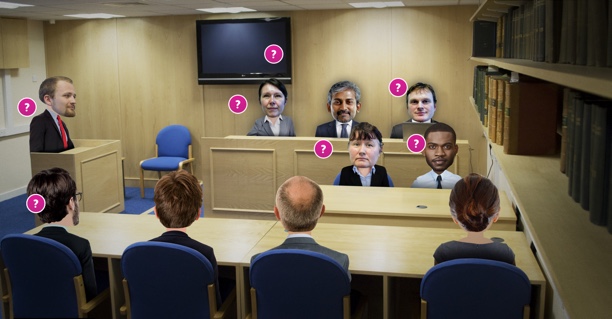This page will take 5 mins to read
Before going to court
Who will help me with going to court?
If your case goes to court Voice will pass your details to the Witness Service. They’re based at the court and will help you with information and support throughout the trial.
Voice will help you to prepare to attend court and this advice will be tailored to your individual needs. This can range from generic practical advice and assistance to possibly assisting with applying for Special Measures through the Crown Prosecution Service to the Judge.
Additionally, there are special Witness rooms for Victims and Witnesses to wait inside prior to giving evidence in Court, totally separate from the Public, Defendant and Defence witnesses.
What if I want to visit the court beforehand?
In addition to the service offered by Voice, there’s an independent Witness Service in each court and they can arrange pre-court visits and provide friendly support when you are at court. Their volunteers can also help with expenses claims but they are unable to give advice or talk about your evidence.
How should I prepare before going to court to give evidence?
You should leave enough time for your journey to the court. Bring any papers you have about the case, including the letter asking you to attend court.
You will find clear signs to help you find your way around. All cases are listed under the defendant’s name. Give the receptionist or member of the security staff the name of the defendant and show them the letter asking you to attend court. They will show you where to go.
If you are worried about meeting the defendant or their friends, tell the security personnel when you arrive. There may be a separate room where you can wait.
Wherever you wait, you should listen carefully for either your name or for your case to be called.
What if I think that the process of giving evidence will be too traumatic for me?
Some people can find the process of giving evidence in court particularly difficult, due to their individual needs. Special measures are available to help victims and witnesses in certain circumstances give their evidence in the best way possible. Your Voice Support Worker will discuss this with you when they ask you to go to court.
Special measures need to be arranged before the trial, and agreed by the judge. The judge will make their decision based on what the police and the prosecutor have told them you want. So it’s important to tell them what you think.
If you are a vulnerable witnesses, you may be able to give evidence from an alternative location by video link. Your Voice support worker will discuss this with you if you qualify.
Below are the main special measures that can be put in place to help you give evidence…
- If you have a disability that may affect the way in which you need to give your evidence
- If English is not your first language or if you have any other communication needs
- If you are the parent, guardian or carer of a witness that has specific needs
- If you are under 18
- If you feel vulnerable
- If you feel intimidated
- Have experienced a serious crime or sexual offence
- You have a mental disorder
- You have significant impairment of intelligence and social functioning
- Or if your evidence is likely to suffer because you are extremely distressed at giving evidence
Last modified 14th October 2019

Interactive Courtroom
This is a place for you to explore. You can find out who's who in court, test out the extra help you can get and see what court looks like.




 Completed Section
Completed Section  Current Section
Current Section  Not Started Section
Not Started Section
 Swipe to view stages
Swipe to view stages
 Reporting a crime
Reporting a crime The Police Investigation
The Police Investigation Going to court
Going to court After sentencing
After sentencing Support after sentencing
Support after sentencing
